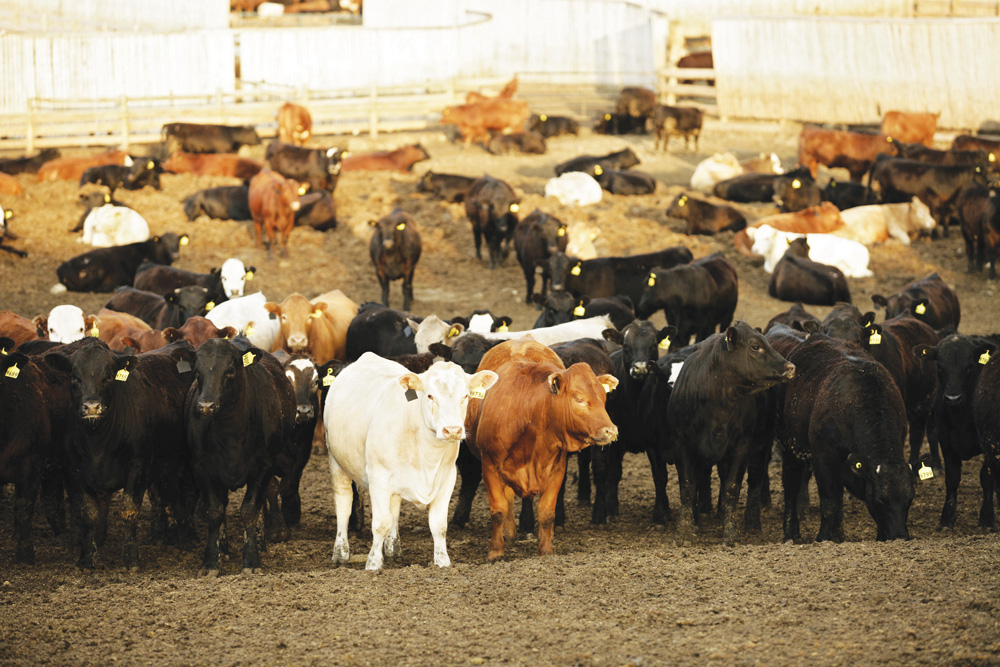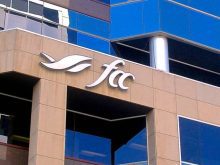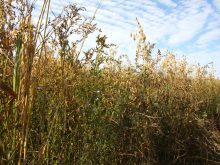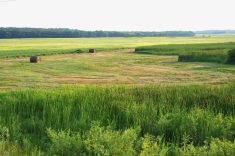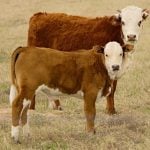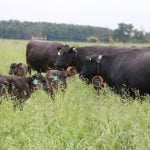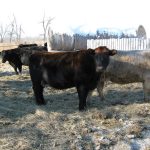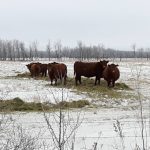Farm Credit Canada (FCC) wants to pay its beef sector clients for joining up with the Canadian Roundtable for Sustainable Beef (CRSB).
On May 24, the company announced its FCC Sustainability Incentive Program. The program promises a yearly payment to producers who are certified through the CRSB, up to maximum of $2,000. Producers can reapply for the payment each year that the program is in force, according to FCC.
The CRSB has more demand for certified sustainable beef than can be reliably supplied by the current value chain. The roundtable says incentive programs like the one just announced by Farm Credit Canada might help close the gap.
Read Also

Trade uncertainty, tariffs weigh on Canadian beef sector as market access shifts
Manitoba’s beef cattle producers heard more about the growing uncertainty they face as U.S. tariffs, and shifting trade opportunities, reshape their market.
Curtis Grainger, FCC’s director of lending products and sustainability, said actual value of those payments will vary, based on a calculation using the amount of lending a client has with FCC.
The program will extend both to new CRSB-certified clients, as well as those already partway through paying back loans, Grainger added. The program will, however, initially be more focused on those who already have CRSB certification.
“It takes producers about six to nine months to get certified, so this first launch is all about essentially recognizing people for all the great things they’ve done,” Grainger said. “And then what we’re kind of hoping is that as time goes on here, it gives (other) producers that opportunity to also get certified.”
A group of CRSB-certified producers had participated in a pilot of the program prior to the May 24 announcement.
CRSB chair Anne Wasko suggested that the incentive program may drive up participation in the roundtable’s framework and support the certified sustainable value chain.
“Any time you’ve got an incentive, however that may be, whether that’s on the market side or whether it’s, in this case, on the financial side in terms of loans… it tends to drive more interest in the certification program, or at least that’s what we anticipate,” she said. “I think as we go down the road here, incentive programs are going to be part and parcel.”
Wasko noted that gaps in the value chain, which limit the supply of beef eligible for a CRSB claim, are largely with the number of certified cow-calf operators.
The roundtable also hopes the partnership will open the door to similar incentive programs from other stakeholders.
“This is great because it’s the first financial institution to recognize customers,” Wasko said. “So I would love this to be a launching point for other financial institutions. That would be super. We continue to see processing plants come on with various programs and it would be great to see more there.”
There has been significant interest in similar programming, Wasko said.
Under the CRSB framework, farmers derive a premium for cattle born, raised and processed within the network of farms, backgrounding operations, feedlots and processors/packers that have been audited to the framework’s standards. Meat from the value chain can then be sold with a CRSB claim to companies that have committed to buying meat bearing that claim.
Premises that want to get certified can turn to three auditing bodies recognized by the roundtable: Verified Beef Production Plus, Where Food Comes From Canada, and the Ontario Corn Fed Beef Quality Assurance Program. Once confirmed that they meet the standards — which include measures on natural resource management, social respect, animal welfare, food safety and efficiency — participants undergo regular audits to maintain their status.
“Many producers may already have the sustainable practices in place to meet the standard,” the CRSB website reads.
As of June 3, 2021, the roundtable registered 1,332 certified farms, accounting for about 17 per cent of Canada’s beef herd. Eight companies, including major retailers and restaurant chains, had signed up to buy meat with a CRSB claim, and 17 million pounds of beef with a claim had been sold since the framework’s launch in 2018.
Future FCC programs
FCC has said that the partnership with the CRSB may be only the first of such programs.
In the May 24 release, FCC vice-president of marketing, Todd Klink, said that the company intends to build “incentive programs for other sectors in the future.”
“The CRSB is a really great place for FCC to start,” Grainger said. “And that’s because it has an established process set up that producers can get verified through.
“We’re looking for opportunities to partner and support other industry-led sustainability initiatives and we’re going to continue exploring different ways we can support customers and the incentive for beef producers is really just the start,” he added.
Eligible producers can apply for the program online at fcc.ca/sustainabilityprograms. Grainger estimates that an application would take five to 10 minutes.
“It’s really quick,” he said. “The producers have already done the hard work in getting certified already, so we wanted to make sure our incentive program… is super quick and easy.”


